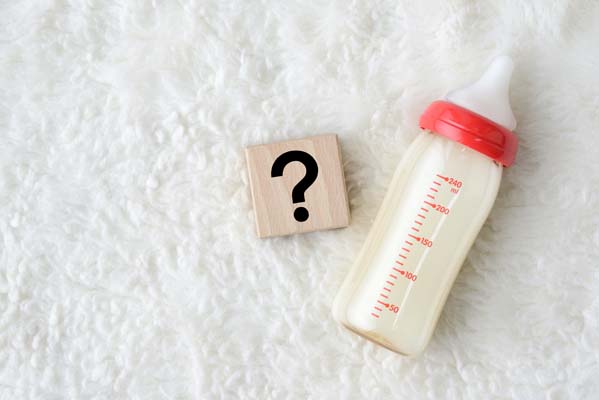3 Tips For Preventing Baby Bottle Decay

Baby bottle tooth decay, is the development of cavities that can harm a baby's teeth. Yes, your child's baby teeth will ultimately fall out and be replaced by adult teeth, but those temporary teeth are crucial not just for correct eating and speaking but also for ensuring that the permanent teeth come in properly. Continue reading to discover tips for preventing baby bottle decay.
Preventing baby bottle decay
Proper oral hygiene begins in the first year of a child's life. Gentle brushing and other preventative measures are required before the first tooth's eruption to avoid baby bottle decay. There is never a wrong time to incorporate preventive care into the child's routine, and the following suggestions might help.
Keep the Bottle Clean
The first step to maintaining the baby's dental health is to keep the bottle clean. The baby's bottles should be free of Bisphenol A (BPA), a chemical believed to cause developmental issues in children, and properly sterilized before handed to the child. Sterilization methods include boiling in water, microwaving with a steam sterilizer, and the use of an electric bottle steamer to eliminate germs that can cause sickness and lead to bottle decay. To prevent harmful bacteria growth, sanitize baby bottles weekly.
Cut down on sugar
Tooth decay can occur in children, but it is most usually caused by exposure to sweets in milk and juices, encouraging germs to proliferate. The longer sugar stays on the teeth, the greater the chance of cavities. To avoid this, parents should avoid giving their kids a bottle during naps or at nighttime, and they should not be allowed to go around with it in their mouth.
Reducing or stopping artificial juices and other sugary liquids in the child's diet and opting for breast milk and formula are still the healthiest options at this period of development. Also, avoid licking pacifiers or sharing utensils with the child since bacteria can be transferred and cause decay.
Clean their gums
Even though the child does not have teeth yet, their gums require specific attention. According to the National Institutes of Health (NIH), early childhood tooth decay is more common in the upper and lower front teeth. Since these teeth are necessary for eating and communicating, the sooner the child adopts an oral hygiene routine, the less likely a bottle may cause dental or speech issues later. After each meal, wipe the baby's gums clean with a clean washcloth or gauze pad.
Parents can start brushing with an infant toothbrush and a dab of fluoride toothpaste the size of a pea once these incisors come in — as early as six months old, according to the American Dental Association (ADA). To shield the tooth enamel against cavities caused by an unhygienic bottle, use kid-friendly toothpaste.
Final note
Of course, make that first dental appointment before their first birthday to start a routine, as advised by the American Academy of Pediatrics (AAP). From the beginning, a child's developing teeth are important. Learn about these infant oral hygiene tips and continue to sterilize children's bottles to prevent baby bottle decay to ensure that they grow up with a healthy smile.
Request an appointment here: https://www.littleteethbigsmiles.com or call Fara Bender DMD PA at (561) 763-9218 for an appointment in our Lake Worth office.
Check out what others are saying about our services on Yelp: Read our Yelp reviews.
Related Posts
A baby root canal may sound scary, however, it is nothing to be afraid of. Modern-day dentistry has allowed for the evolution of gentler techniques and safer approaches, thus reducing the risk of complications and pain during the procedure.Baby root canals, in particular, are done differently as they are performed in a pediatric dentistry setting,…
Going to an emergency pediatric dentist can give your child immediate dental needs. Treating urgent dental issues can provide relief right away. It can also prevent complications. Here are the necessary steps that you can take even before the drive to your emergency pediatric dentist.Showing distress will only intensify the child’s anxiety. This will make…
Caring for kids' teeth is essential for their health and speech development. When a tooth becomes damaged, kids' dental crowns can help restore its function and protect it from further harm. In the past, dentists commonly used metal crowns for kids, but advancements in dentistry have introduced metal-free options. These modern crowns provide a natural…
Dental bonding for kids is not something you see every day, but it is sometimes necessary to keep a child from losing their teeth too early due to damage and decay. You may have heard of this procedure before for adults, but it is also very useful for kids and can dramatically improve the look…
